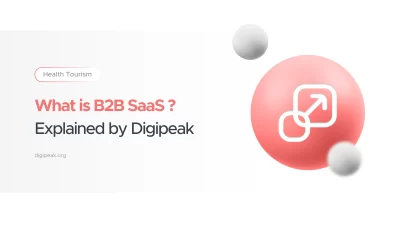
7 Business Plan Examples for Digital Marketing
A business plan for digital marketing is often misunderstood as a calendar of social media …
01/03/2023 -
6 dk okuma
Stay up to date with Peakers
It’s hard to succeed at the beginning. It takes a lot of work to start a new business and sustain it for the long term. According to statistics, often only half of new businesses and startups make it past five years.
This introduction is not meant to discourage you or make you give up on your dreams. Our goal is to underline the importance of every decision a business owner makes.
The first step in this process begins long before you even think about start-up finances, the products you will stock, service strategies and process design – when you choose the name of your business.
Choosing a name for your business is no small undertaking. Adopting the wrong company name means complicating the whole process with a handicap. Before thinking about products, prices or promotions, you need to find the perfect name. We have created this guide to help you along the way.
We will take you to step by step through the process of finding the ideal name for your company.
In a nutshell here are the simplified steps to finding the right name for your brand:
1. Gather ideas from your environment and brainstorm
2. Use clear, descriptive, easy-to-remember words and letters
3. Make sure it is catchy AND unique
4. Skip the buzz words and cliche tags
5. Make sure the name can be designed on your logo, slogans & taglines
No one builds a building on unstable ground. If you don’t give your business the right name, you will be doing the exact thing. Here are the three most important reasons why you should give this process the attention it deserves:
Your business name is the foundation of your organization. Whether you communicate online or offline, the first thing someone will learn about you is what your name is. Your name defines people’s first thoughts about you, and you only get one chance to do that.
Your perfect brand name can tell your potential customers everything they need to know about your products and your company. A brand name allows you to communicate your business identity directly, a good name conveys brand equity and helps customers focus on a clear brand story.
Your name is your statement of intent and the first step in establishing your unique position in your field. A successful name helps your brand stand out from the crowd, conveys trust, authority and expertise in any industry, and tells consumers in a few short words that you offer top-notch customer service.
Entrepreneurs often use one of five approaches to name their brand. Your ideal approach depends on your brand identity, industry and target audience.
Take Advantage of Automation with Artificial Intelligence!
How can you use your time more efficiently? Artificial intelligence saves you time by automating repetitive tasks. Learn how you can leverage AI to accelerate your business processes.
Descriptive names are ideal for identifying a product or service and clearly positioning a brand. They tend to be functional and utilitarian, but less susceptible to misinterpretation. While it can be difficult to convey a story with a descriptive name, new market entrants can benefit from it. Note, however, that it can be difficult to trademark businesses with names that contain real words.
Many brand names are composed of root words in Latin, Greek and other foreign languages in order to embody the identity of the brand. We can characterize them as fun and catchy names that do not directly refer to the actual activities of a brand, but with enough repetition, customers will learn to associate this name with a specific product.
Emotional brand names evoke specific emotions in your customers that make them prefer your products or services. Such names use a variety of associations (ideas or emotions) to convey the brand experience. Emotional business names are great for companies that stand for more than just the products or services they offer, and because of their authenticity, they often have a higher trademark value than descriptive names.
Acronyms are used to shorten extremely long names that would be difficult for customers to remember, such as BMW (short for Berlin Motor Works). However, acronyms lack meaning, emotion and imagery. Some businesses use acronyms out of necessity to preserve their historical value and story. In this way, they preserve their brand heritage and modernize their names for today’s times.
Some businesses completely turn their backs on emotions and associations and use words from various languages. For example, the global Japanese restaurant chain Yoshinoya is made up of three Japanese words meaning “luck”, “field” and “home” and is derived from “Yoshino”, the name of the owner’s hometown.
Use a structured and disciplined approach to create a list of names that will fit your business. Don’t rely on your internal feeling. Do market research, talk to potential customers, ask for feedback from friends and family, and keep working until you find the right name.
Use brainstorming techniques to create a comprehensive list of alternative names. Conduct industry research. Research how your competitors come up with their brand names. Think about the famous brands you are most familiar with.
For example, what does the Nike brand bring to mind? You will need to explore and iterate to find the right brand name. You can start the process on your own, but don’t forget to get feedback from trusted advisors (Digipeak Agency), friends and family members before going public.
Start by taking note of all the words related to your brand and industry. Do not over-analyze. Set a timer and try not to stop writing during this time. Transcribe all the words that describe your product or service.
Review the pool of words you have created and try to find synonyms. Expanding your list gives you more options. At this stage, you can cross out words that you don’t feel comfortable with. Don’t limit yourself to adjectives. Remember, the strongest-sounding company names are often nouns.
Online name automations (BusinessNameGenerator, Namelix, Wordoid, etc.) generate potential business names based on just a few keywords. Such online automation checks domain name availability on the fly. On the above sites, you can add different filters, such as your industry, products, and services, as well as change the length and balance of your business name. The more keywords you use, the more diverse suggestions you will get. Keep experimenting until you find the business name that’s right for you.
In a nutshell, naming a business is a big responsibility that will determine how customers perceive your brand. Following the guidelines in the letter will help you a lot in this endeavor.
But if you still want to get professional support on this issue, as members of the Digipeak family, we are happy to provide professional brand identity services for your business. Just send us an e-mail.
Get an Offer


Join Us So You Don't
Miss Out on Digital Marketing News!
Join the Digipeak Newsletter.
Related Posts

A business plan for digital marketing is often misunderstood as a calendar of social media …

Where Do You Sell Your Products? Do you sell them at a shop just around …

In the fast-paced rhythm of the digital age, Business-to-Business (B2B) Software as a Service (SaaS) …

As businesses of all kinds were and still are looking for ways to streamline their …